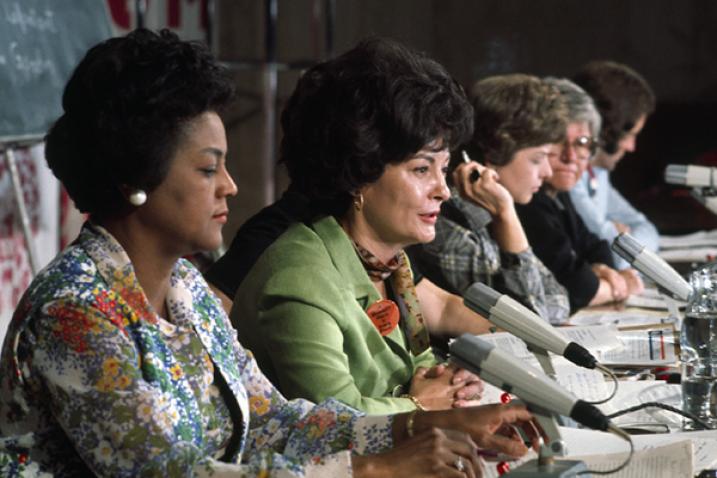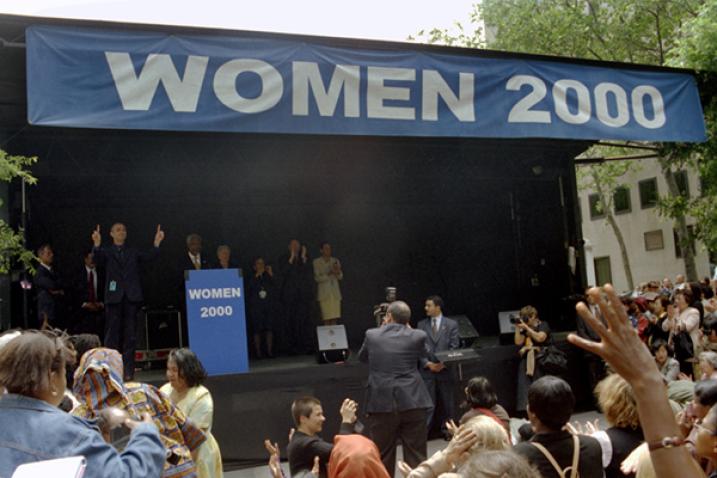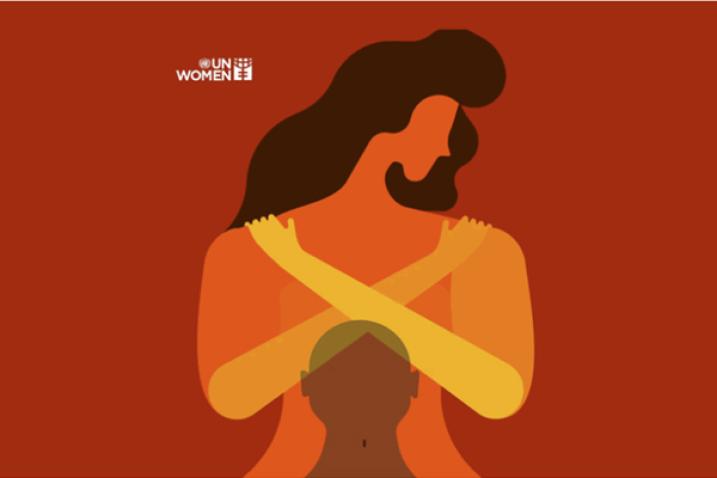BACKGROUND
Gender equality is a basic human right. Article 1 of the Universal Declaration of Human Rights, adopted by the UN General Assembly on 10 December 1948, stated that “All human beings are born free and equal in dignity and rights” and Article 2 stated that “everyone is entitled to all the rights and freedoms set forth in this Declaration, without distinction of any kind, such as race, colour, sex, language, religion, birth or other status.”
Thirty one years after the creation of the Universal Declaration of Human Rights, the Convention on the Elimination of All Forms of Discrimination against Women was adopted by the UN General Assembly on 18 December 1979. This was followed 16 years later by the Beijing Declaration and Platform for Action, adopted in 1995 at the Fourth World Conference on Women in Beijing. The Beijing conference was preceded by three conferences on women and gender equality.
The first World Conference on Women took place in Mexico City in 1975, after the Commission on the Status of Women called for the organization of the first world conference on women to coincide with International Women’s Year. The conference defined a World Plan of Action for the Implementation of the Objectives of the International Women’s Year, which offered a comprehensive set of guidelines for the advancement of women through 1985.
In 1980, 45 Member States gathered for the second women's conference, the mid-decade World Conference of the United Nations Decade for Women in Copenhagen. It aimed to review progress in implementing the goals of the first world conference, focusing on employment, health and education. A Programme of Action called for stronger national measures to ensure women’s ownership and control of property, as well as improvements in protecting women’s rights to inheritance, child custody and nationality.
The third world conference for women, the World Conference to Review and Appraise the Achievements of the UN Decade for Women took place in Nairobi, Kenya in 1985. The conference’s mandate was to establish concrete measures to overcome obstacles to achieving the Decade’s goals. Participants included 1,900 delegates from 157 Member States; a parallel NGO Forum attracted around 12,000 participants. Governments adopted the Nairobi Forward-Looking Strategies for the Advancement of Women, which outlined measures for achieving gender equality at the national level and for promoting women’s participation in peace and development efforts.
Ten years later, the Fourth World Conference on Women, held in Beijing, marked a significant turning point for the global agenda for gender equality. The Beijing Declaration and the Platform for Action, adopted unanimously by 189 countries, was an agenda for women’s empowerment and is now considered the key global policy document on gender equality. It set strategic objectives and actions for the advancement of women and the achievement of gender equality in 12 critical areas of concern:
The Beijing conference built on political agreements reached at the three previous global conferences on women, and consolidated five decades of legal advances aimed at securing the equality of women with men in law and in practice. More than 17,000 participants attended, including 6,000 government delegates at the negotiations, along with more than 4,000 accredited NGO representatives, a host of international civil servants and around 4,000 media representatives. A parallel NGO Forum held in Huairou near Beijing also drew some 30,000 participants.
These four major UN conferences on women were followed by a series of five-year reviews.
2000: The 23rd Special Session of the General Assembly was held 5-9 June 2000 in New York, in order to conduct a five-year review and appraisal of the implementation of the Beijing Platform for Action, and to consider future actions and initiatives. This Special Session resulted in a political declaration and further actions and initiatives to implement the Beijing commitments.
2005: A 10-year review and appraisal of the Beijing Platform for Action was conducted as part of the 49th session of the Commission on the Status of Women. Delegates adopted a declaration emphasizing that the full and effective implementation of the Beijing Declaration and Platform for Action is essential to achieving the internationally agreed development goals, including those contained in the Millennium Declaration.
2010: The 15-year review of the Beijing Platform for Action took place during the Commission’s 54th session in 2010. Member States adopted a declaration that welcomed the progress made towards achieving gender equality, and pledged to undertake further action to ensure the full and accelerated implementation of the Beijing Declaration and Platform for Action.
2015: The 20-year review and appraisal of the Beijing Platform for Action took place during the Commission’s 59th session in 2015. The session also addressed opportunities for achieving gender equality and the empowerment of women in the post-2015 development agenda. Member States adopted a political declaration that welcomed the progress made towards achieving gender equality, provided a strong basis for the full, effective, and accelerated implementation of the commitments made in Beijing, and also championed the key role of gender equality and the empowerment of women in the post-2015 development agenda.
2020: A 25-year review and appraisal of the Beijing Platform for Action was to take place during the 64th session of the Commission on the Status of Women, which was to be held in March 2020. However, due to concerns regarding COVID-19, the Commission convened once, for a meeting on 9 March 2020 that included opening statements, followed by the adoption of a draft Political Declaration. The session was then suspended, until further notification.
THE COMMISSION ON THE STATUS OF WOMEN
The Commission on the Status of Women (CSW) is the principal global intergovernmental body exclusively dedicated to the promotion of gender equality and the empowerment of women. A functional commission of the Economic and Social Council (ECOSOC), it was established by ECOSOC resolution 11(II) of 21 June 1946.
The CSW is instrumental in promoting women’s rights, documenting the reality of women’s lives throughout the world, and shaping global standards on gender equality and the empowerment of women.
In 1996, ECOSOC in resolution 1996/6(see p. 20) expanded the Commission’s mandate and decided that it should take a leading role in monitoring and reviewing progress and problems in the implementation of the Beijing Declaration and Platform for Action, and in mainstreaming a gender perspective in UN activities.
During the Commission’s annual two-week session, representatives of UN Member States, civil society organizations and UN entities gather at UN headquarters in New York. They discuss progress and gaps in the implementation of the 1995 Beijing Declaration and Platform for Action, the key global policy document on gender equality, and the 23rd special session of the General Assembly held in 2000 (Beijing+5), as well as emerging issues that affect gender equality and the empowerment of women. Member States agree on further actions to accelerate progress and promote women’s enjoyment of their rights in political, economic, and social fields. The outcomes and recommendations of each session are forwarded to ECOSOC for follow-up.
UN WOMEN
UN Women supports all aspects of the work of the Commission on the Status of Women and facilitates the participation of civil society representatives. The United Nations faced serious challenges for many years in its efforts to promote gender equality globally, including inadequate funding and no single recognized driver to direct UN activities on gender equality issues. To remedy this, in July 2010, the United Nations General Assembly created UN Women, the United Nations Entity for Gender Equality and the Empowerment of Women. In doing so, UN Member States took an historic step in accelerating the Organization’s goals on gender equality and the empowerment of women. The creation of UN Women came about as part of the UN reform agenda, bringing together resources and mandates for greater impact. UN Women merged and built on the important work of four previously distinct parts of the UN system, which focused exclusively on gender equality and women’s empowerment:
-
Division for the Advancement of Women (DAW)
-
International Research and Training Institute for the Advancement of Women (INSTRAW)
-
Office of the Special Adviser on Gender Issues and Advancement of Women (OSAGI)
-
United Nations Development Fund for Women (UNIFEM)






